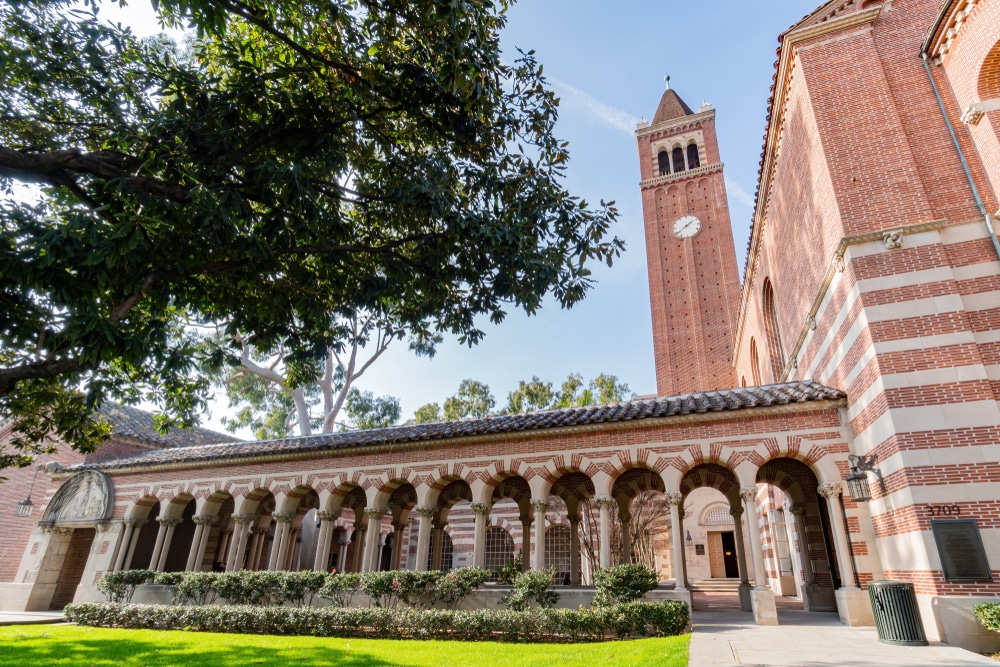Why Your Student Should Compete in the US National Chemistry Olympiad (USNCO)
If your student is passionate about science and chemistry and is looking for an exciting new extracurricular that will expand their knowledge, give them fantastic experiences, earn them lifelong friends, and help them gain acceptance to the university or college of their dreams, then the US National Chemistry Olympiad (USNCO) is certainly one to consider.
When it comes to investing time in an extracurricular, there are a lot of reasons why academic competition extracurriculars such as the US National Chemistry Olympiad (USNCO) are a great way to go.
Not only do they show college admissions officers that your student is smart and dedicated to his or her own education, but it also shows that they have the determination and diligence to succeed amongst some of their most accomplished peers.
But what is the US National Chemistry Olympiad (USNCO), and why is it such a fantastic extracurricular for high schoolers to consider? Let us at AdmissionSight break it all down for you below.
About the US National Chemistry Olympiad (USNCO)
The US National Chemistry Olympiad (USNCO) is a multi-tiered scholastic competition that was created with the intention of stimulating and promoting achievement and excellence in high school-level chemistry.
Each year, this program that is sponsored by the American Chemical Society chooses four students to represent the entire United States of America in the highly prestigious International Chemistry Olympiad (IChO), which is hosted every summer in one of the participating countries.
When it comes to the US National Chemistry Olympiad (USNCO), there are a lot of varying goals that the program hopes to achieve and offer the many students who participate. Overall, the US National Chemistry Olympiad (USNCO) aims to:
- Encourage high school students to strive for and achieve excellence in chemistry
- Recognize outstanding chemistry students and encourage learning and intellectual development that goes beyond the high school classroom
- Recognize the excellence of teachers and their crucial job within the school environment
- Provide meaningful and valuable contact between ACS local sections and area schools and fostering a great interest among professional chemists in teaching chemistry in high schools
- Challenge the chemical knowledge and abilities of high school-aged students at an international scale
- Encourage friendships and relationships among students with similar passions and interests that go beyond that of culture, region, language and more
Exam format and rules
Now that you have a general idea regarding what the US National Chemistry Olympiad (USNCO) hopes the achieve each and every year. Let’s break down the formats of all the different exams that students will have to go through in order to get the chance to represent the United States at the International Chemistry Olympiad.
Each year, nearly 16,000 students will participate in local Chemistry Olympiad competitions. Over 70 percent of the local sections use the official Local Section Exam that is prepared by the ACS Chemistry Olympiad Examination Task Force. Sounds pretty serious! And it is! The exams are administered each March, and students who earn the best scores are the ones that are nominated for the US National Chemistry Olympiad (USNCO) based on their performance.
From there, the US National Chemistry Olympiad (USNCO) is broken up into three parts. In all, the exam lasts for a whopping four hours and 45 minutes. It is administered each April by ACS Local Sections.
While nearly 16,000 students participate in local Chemistry Olympiad competitions, the number of students that get to compete in the US National Chemistry Olympiad (USNCO) is just over 1,000.
For those that do advance to this level, this is how each part of the 4 hours and 45-minute exam is broken up.
- Part I – This part of the exam is a 90-minute multiple-choice exam where students will be asked to answer 60 total questions that cover a broad set of topics related to chemistry
- Part II – This part of the exam lasts 105 minutes and asks students to show their problem-solving skills and abilities by answering eight total written questions that cover chemical theories and models
- Part III – This part of the exam takes up the remaining 90 minutes and asks students to show their problem-solving skills within the laboratory through going through two separate laboratory practicals
Following the US National Chemistry Olympiad (USNCO) exam, the top 20 (yes, you read that correctly, 20) students are then chosen to attend a study camp wherein those students get to compete to gain selection for the international competition.
At that study camp, the top 20 scoring students from the National Exam spend two weeks and undergo rigorous class time and training. The four students that are selected to take part in representing the United States at the International Chemistry Olympiad are the ones that perform the best while at the study camp.
Rules and eligibility
As you might expect, there are quite a few rules regarding who is and who is not eligible to compete in the US National Chemistry Olympiad (USNCO). If you are curious about whether or not your student is eligible to compete, you will most likely get the answer you are looking for below:
In order to compete, students must be United States citizens or legal, permanent residents of the United States to take the U.S. national exam.
High school students who will graduate no earlier than May 1st of the year in which they are to participate are eligible to take that year’s national exam.
In order to take the exam, students must be under the age of 20 years old on July 1st of that year to take that year’s national exam.
Up to just two students per high school per local section are able to be nominated to take the national exam. If a student attends a magnet program, is split enrolled, or is a cyber student, a student’s school is defined as the high school from which the student will get his or her diploma upon graduation.
Eligible students who have previously attended the study camp are able to automatically qualify for the national exam and are not counted against the two-student limit eligible from their local section or school. That’s great news both for students who have attended the study camp, as well as other students from the same school who have similar goals.
Students who win gold medals at the International Chemistry Olympiad are not eligible to participate in subsequent International Chemistry Olympiads or study camps.
Students who have taken advanced placement courses in chemistry are eligible to compete.
A student is only allowed to compete in the competition section in which the student’s high school is physically located. If a student is enrolled as a cyber student, that student is able to participate in the local section of where he or she is physically located, it is not based on the physical location of the cyber school that they attend.
If a student participates in any of the following: Physics Olympiad study camp, Mathematics Olympiad study camp, or the Biology Olympiad study camp is not eligible to participate in the Chemistry Olympiad study camp during the same summer.
When it comes to participation in the exam, only non-programmable calculators are allowed to be used during the national exam and on the ACS local section. If a student is found using a programmable calculator, cell phone, or any other device that can access the internet or make copies or photographs during the exam, the student will be disqualified.
What role do mentors play in the US National Chemistry Olympiad (USNCO)?
If you have done some preliminary research on the US National Chemistry Olympiad (USNCO), chances are good you have come across the mention of mentors. You might be wondering what role the mentors play in every students’ journey from a local exam, to US National Chemistry Olympiad (USNCO), to International Olympiad.
The truth is that the Chemistry Olympiad Mentors play an incredibly important role when it comes to helping the nation’s brightest young minds prepare for the arduous journey ahead.
Mentors are made up of high school teachers and college faculty who serve terms of three years and receive an honorarium. The ACS provides mentors with a valuable handbook that contains guidelines on their duties and responsibilities in the role.
Mentors are crucial to the 20 students that attend the two-week study camp. Their responsibilities during this training period include:
- Develop practice problems, study guides and lesson plans that will be used during the practice camp
- Determine fair testing materials that will prepare the students for the upcoming international competition
- Determine daily schedules, faculty staffing and additional curriculum requirements for the upcoming study camp
How to prepare for the US National Chemistry Olympiad (USNCO)?
When it comes to students preparing for the US National Chemistry Olympiad (USNCO), one of the very best options that we have found is the ChemWOOT, otherwise known as the Chemistry Worldwide Online Olympiad Training, that is offered by the ArtoProblemSolving.
ChemWOOT is an online training program that prepares high school students for the US National Chemistry Olympiad (USNCO) and is a way for students to bridge the gap of difficulty between thee National Olympiad and the study camp.
The way in which ChemWOOT prepares its students is by using US National Chemistry Olympiad (USNCO)-level topics and problems and turning them into. Discussions points and problem-solving strategies that students can learn and master. Through this process, students gain the knowledge and confidence that is required to succeed at the local Chemistry Olympiad and beyond.
In all, students who enroll in the ChemWOOT course will be able to take advantage of the following materials:
- 15 separate chemistry problem-solving classes where each class focuses on a new advanced topic in chemistry.
- Two practice UNESCO-style tests that are in the format on the US National Chemistry Olympiad (USNCO).
- One practice IChO-style test
- Access to a message board where students can’t meet, talk and discuss problems from lectures and exams
- Access to the online classroom 24-hours a day where CHemWOOT participants can work together to learn and solve problems
- A list of recommended readings in a textbook that is used to prepare the US Olympiad Study Camp
- Instruction from trained teachers who have won International Chemistry Olympiad Medals and who have been trained to help others achieve the same goal
Why extracurriculars are important?
Now that you know all of the great basic information there is to know about the US National Chemistry Olympiad (USNCO), we should probably go over why these types of extracurriculars are so valuable.
For years, parents and students alike a have known that the students who commit a large amount of their time and energy to a few extracurriculars not only get the most out of in terms of knowledge, achievements, and experiences but also get the most out of it in terms of how impressive they look on their college applications.
When it comes to what college admissions officers are looking for in a student’s extracurricular activities, they want to see that a student is able to commit themselves in order to achieve goals and gain results. It is always best to engage in a few extracurriculars throughout an entire four-year high school career than it is to pick three and do them for one year before switching to the next in the following year.
Taking part in an extracurricular that is academically challenging is another gold star on your child’s application because it shows that they are interested in pursuing academic excellence. Taking part in something like the US National Chemistry Olympiad (USNCO) shows that they are not only interested in doing so but are also bright enough to compete at a very high level.
In fact, even if your child never advances to the Olympiad Study Camp, competing in the US National Chemistry Olympiad (USNCO) will absolutely jump off the page whenever a college admissions officers take a look at your child’s application!









































